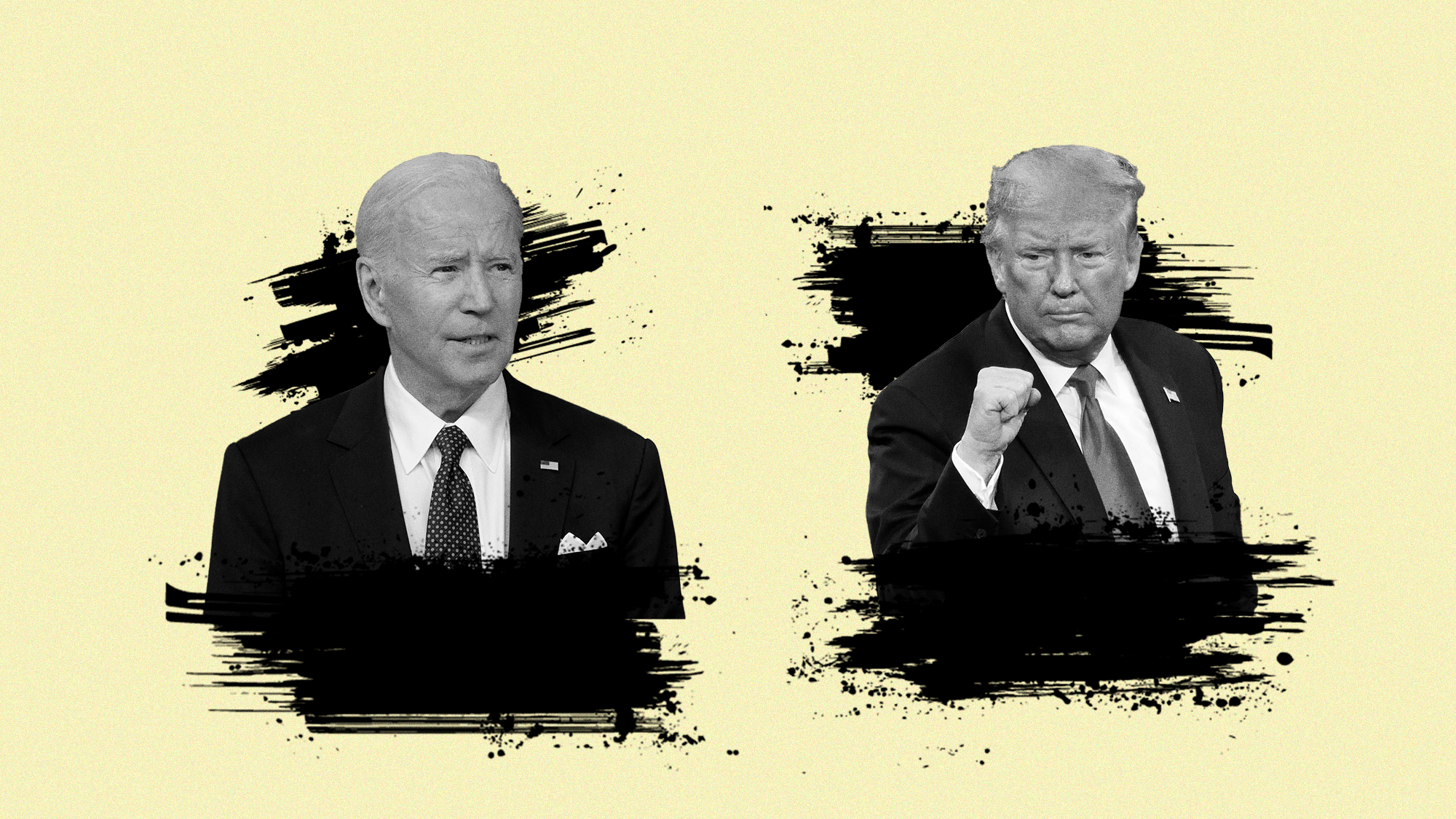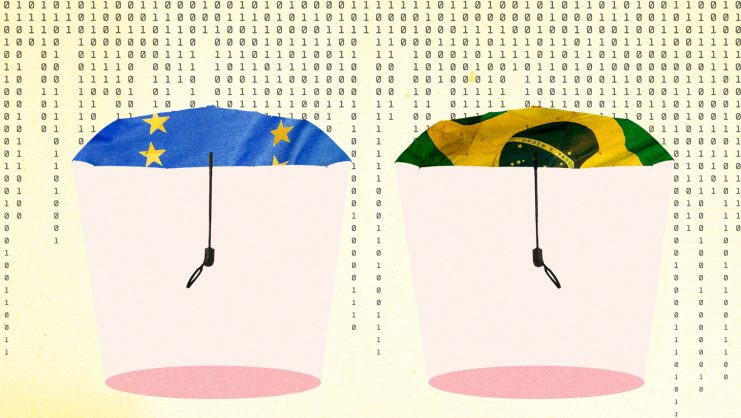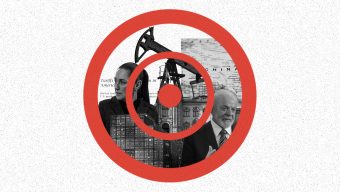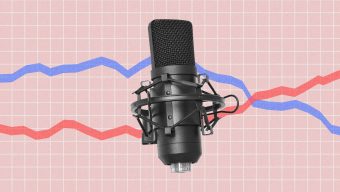“How is it possible that a country like the United States cannot find better presidential candidates than Biden and Trump?” This is the number one question I get asked as primary season heats up and a Biden-Trump rematch seems more and more inevitable.
But this is the wrong question to be asking.
Rather, we should look at why these two men have their parties’ nominations locked up – because each one does, but for very different reasons. Biden has a more straightforward explanation so let’s start with him.
Joe Biden is the presumptuous nominee for the Democratic Party because he’s the president and party members don’t usually run against their president. Sure, Biden is 80 years old, making him the oldest US sitting president in history and his age has been an issue in the runup to reelection. Democrats who voted for him in 2020 knew his age but believed, correctly, that he was the best candidate in a match-up against Trump (who is just three years Biden’s junior, by the way.)
This is not to say that there haven’t been same-party challengers in the past, a most notable example being Senator Ted Kennedy’s challenge to President Jimmy Carter in 1980. Kennedy failed to land the nomination, but the acrimony of the primary took its toll and weakened Carter’s re-election bid. Beyond that, there are always smaller challengers, who may or may not even be on the ballot in all states. Another Kennedy – activist, lawyer, and conspiracy theorist Robert F. Kennedy Jr. – is currently challenging Biden. The aggregate polling on Fivethirtyeight gives him about 13% vs. Biden’s 64%. Author Marianne Williamson is also back, receiving under 10% support.
Interestingly, there’s also some polling on how Vice President Kamala Harris matches up against these two (even though she isn’t going to run against Biden since she’s already on his ticket) and she wins by 20-30 points. In fact, according to the data right now, the only person who could beat Biden or Harris in a primary is Michelle Obama, who has repeatedly said she will not run for president or any office. Ever.
There are plenty of Democrats who would have a shot at the nomination if this were an open primary year. That is, a primary without a sitting president. Others such as activist and candidate for Governor of Georgia Stacey Abrams, Senator Corey Booker, Senator Elizabeth Warren, Secretary of Transportation Pete Buttigieg, Senator Amy Klobuchar, or California Governor Gavin Newsome aren’t making any moves out of respect for their party’s president. And what about AOC (Representative Alexandria Ocasio-Cortez)? At 33, she is too young to run for president, an office which is distinguished with a lower age limit of 35 – which, interestingly is right around the average life expectancy of an American in 1787. The framers of the U.S. Constitution were more worried about someone too young and inexperienced making their way to the White House than an elderly person hanging on past their expiration date.
So, there you have it. Biden will be the Democratic Party nominee unless, perhaps, something happens to his health that impedes his ability to carry on as president, in which case, there will certainly be a scramble of challengers for the 2024 candidacy.
With each indictment, Trump’s campaign has raked in millions in donations.
The same seems to hold true about Trump: one Big Mac too many is more likely to knock him out of the race than those pesky four indictments. The US Constitution offers very few restrictions on who can run for president. You just have to be 35 and older, have lived in the United States for at least 14 years out of your life, and be a “natural born” citizen. This last requirement is a fraught concept (just google “birther”.) There is nothing in the US Constitution about being a convicted felon or being in prison that prevents you from running for president. In fact, Eugene V. Debs’ fifth and final run for president as the candidate for the Socialist Party of America in 1920 was from prison on charges of sedition. Debbs, however, never had a real shot at winning.
Trump is apparently another case. Sure, criminal charges might land him in prison, but this also depends on how fast these trials move. Trump’s lawyers are delaying as much as possible, playing into Trump’s theory that if he can make it to November 5, 2024 and win, then as president, he will be immune to the charges or even able to pardon himself. This remains to be seen. Trump’s “rapidly evolving trial schedule” is causing some judges to re-consider dates, possibly moving them forward. At this point, the first trial – the charges of trying to overturn an election – is scheduled to take place on March 4, the day before Super Tuesday.
This trial schedule will certainly cut into the time that Trump can spend on the campaign trail, yet the media circus will keep him as the dominant news story. Furthermore, with each indictment, Trump’s campaign has raked in millions in donations. So, these trials – or witch-hunts, as he likes to call them – may just prove to be his best campaign strategy yet, and an imprisoned Trump would certainly whip his die-hard supporters into an especially frothy brew of indignation.
Unlike Biden, Trump’s hold on the Republican Party isn’t institutional. Other Republicans who’ve lost presidential races have been quickly banished to the sidelines: George H.W. Bush didn’t win re-election and was dubbed a wimp despite a spectacular political career. Since then, other Republican candidates, such as Bob Dole, John McCain, and Mitt Romney, who all lost presidential elections have gone on to other jobs but were never reconsidered as a candidate.
A big difference between Trump and these other Republican luminaries is that he never gave a concession speech (do take a moment to re-watch McCain’s moving words from 2008). In fact, he insists to this day that the 2020 election was “rigged” against him, stolen from him by Democrats in the “deep state.” The Republicans who love him believe him and they are a significant chunk of the party.
Why is Trump so hard to beat and who are his “ride-or-die” supporters? Nate Cohen of The New York Times took a deep dive into the polling at the end of July. At that point, Trump support among Republican voters sat at 54%, while the aggregated set of polling at Fivethirtyeight on October 14th gave Trump 55.1%. Cohen’s data showed that the hardcore MAGA base represents about 37% of Republicans who will likely vote in the primary. Cohen insists “The MAGA base doesn’t support Mr. Trump in spite of his flaws. It supports him because it doesn’t seem to believe he has flaws.” These people are very conservative and less likely to have a university degree. They believe that Trump did nothing wrong and is being unfairly persecuted.
On the other hand, a full 25% of Republicans are not open to Trump, including some “never-Trumpers.” These people tend to be educated, affluent, and moderate. In the middle is another 37% that is considered persuadable. They don’t heart Trump, but they are open to him along with the other candidates in the primary.
Ron DeSantis is the only candidate who managed to make some inroads into Trump’s dominance in the polls, but never pulled ahead of him. From January 1st until early April, Trump polled under 50% as DeSantis glowed in the aftermath of the 2022 midterms. But in April those numbers started slipping for DeSantis and as they did, Trump support rose over 50% and hasn’t gone below since.
DeSantis’ rise and fall in the polls (he reached 40.5% on January 7th, 17% at the end of July, and was down to 14.1% on October 13th) shows how the right candidate might be able to dig into Trump’s lead among the persuadable Republican primary voters, because the Trump MAGA base won’t budge. Alone, this base isn’t enough for Trump to win the primary, but all he needs to lock up the candidacy is this base plus some of the persuadables.
The more conventional Republicans, such as former UN Ambassador Nikki Haley, former Vice President Mike Pence, and former New Jersey Governor Chris Christie, who were on the debate stage in August are aware of this. To differing degrees, they appeal to the parts of the persuadable block while they gingerly try not to piss off the MAGA base. Since they can’t attack Trump directly, they piled their frustration with and contempt for political “rookies” on Silicon Valley entrepreneur Vivek Ramaswamy. At one point, Haley seethed, “You have no foreign policy experience and it shows.”
Careful analysists including myself are constantly warning the public that polling is not predictive. But it turns out that polling of the modern era of primaries that began in 1972 is a good predictor of who will win. Cohen has a stark reminder for anyone who doubts Trump’s ability to win the coming Republican primary: “No candidate who led his or her nearest rival by at least 20 points at this stage has ever lost a party nomination.”
A version article also ran in Spanish on esglobal.
© IE Insights.











